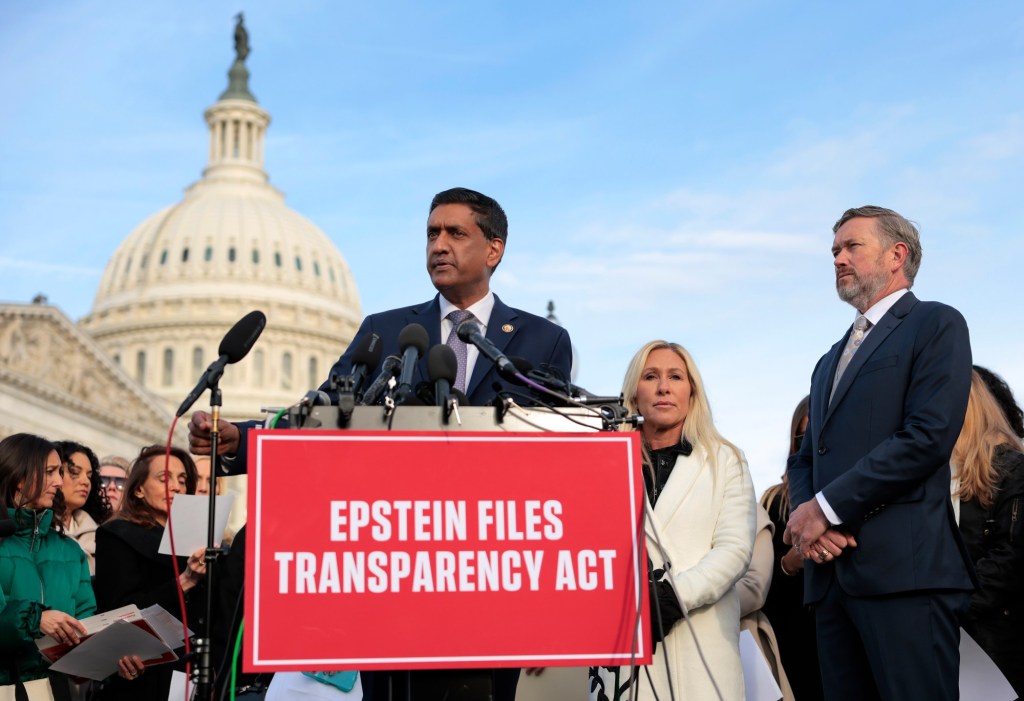Representative Ro Khanna has achieved a significant legislative victory with his bill directing the U.S. Department of Justice to release records from its investigations into convicted child sex trafficker Jeffrey Epstein. The bill garnered overwhelming support in the House, passing with a vote of 427-1 on September 26, 2023, and was subsequently approved unanimously by the Senate. Later that day, President Donald Trump signed the bill into law.
Khanna, a Democrat representing Fremont and parts of Silicon Valley, faced considerable challenges in advancing this legislation. Notably, Trump’s prior association with Epstein complicated the political landscape. The former president had long been a friend of Epstein, and his administration initially resisted efforts to bring the bill to a vote. The situation highlighted a fracture within the Republican Party, particularly given Trump’s public criticism of previously loyal allies like Marjorie Taylor-Greene.
Breaking Party Lines for Justice
In a surprising turn, Taylor-Greene, who had been a staunch supporter of Trump, allied with Khanna to push for the release of Epstein’s files. This collaboration has led to significant tensions, with Trump referring to her as a “disgrace” and a “traitor.” Taylor-Greene remarked that the fight over the Epstein files has “ripped MAGA apart,” a sentiment that underscores the political implications of this bipartisan effort.
Khanna’s approach has been characterized as both strategic and bold. According to Jack Pitney, a politics professor at Claremont McKenna College, Khanna “saw an opportunity that others missed.” Many of his Democratic colleagues had initially dismissed his focus on the Epstein investigation as a distraction, urging him to concentrate on more conventional issues like healthcare and economic concerns.
However, Khanna’s travels across the country revealed a widespread public interest in the Epstein case. He termed this phenomenon the “Epstein Class,” referring to powerful individuals who, according to public sentiment, could evade justice. His persistence paid off when Thomas Massie, a Republican representative, filed a discharge petition in July, allowing Khanna’s bill to bypass a Republican blockade and reach the House floor.
Next Steps for the Epstein Files
The passage of Khanna’s bill does not guarantee a straightforward path for the release of the Epstein records. Even with legislative approval, ongoing investigations could hinder the disclosure of certain documents. Some Democratic senators, including Chris Coons of Delaware, have expressed skepticism about the bill’s implications for transparency.
Khanna remains optimistic, asserting that “a very small percentage of the files” are likely tied to active investigations. This perspective suggests that the U.S. Attorney General may face challenges justifying any decision to withhold the documents. Despite differing opinions within the Democratic caucus, Khanna’s achievement has sparked discussions about bipartisanship in a polarized political climate.
As the legislative landscape evolves, Khanna’s efforts serve as a reminder that both Republican and Democratic lawmakers can unite around a common goal: ensuring justice for victims of child sexual abuse. The successful passage of this bill may pave the way for future bipartisan initiatives as lawmakers seek to address the pressing issues facing their constituents.
For further insights, contact Deputy Opinion Editor Max Taves at [email protected].
